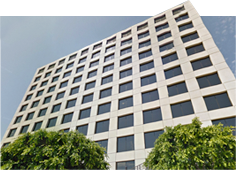Five Things to Know About the New Parole Entrepreneur Program
Proposed Rule Would Ease Foreign Entrepreneur Entry to the U.S.
Under proposed regulations released by the Department of Homeland Security on August 26, 2016, Immigration officials would temporarily admit business owners into the U.S. whose start-up business will likely be successful in the U.S. and create jobs for U.S. workers.
By using its relatively rarely used “parole” power, Immigration officials can admit an individual to the U.S. if they believe the person would provide a “significant public benefit”. Paroling in entrepreneurs allows the White House to bypass the necessity for the long-stalled Start-up Visa which has been introduced by Congress in recent years but was never passed into law. The new program will fill a cap in the U.S. business immigration matrix by allowing promising foreign entrepreneurs who do not meet eligibility for existing programs, to enter the U.S. and grow their business here.
Here are five things to know about the Proposed Rule:
1. Who Qualifies Under the New Entrepreneur Rule?
Immigration officials expect approximately 3,000 applicants in the first year, with no annual cap as to the total number of applicants in future years. Qualifying under the new rule requires the following:
- Own at least 15% of a startup business which was formed in the U.S. in the past three years;
- Have an active and central role in the management of the startup entity; AND
- The startup entity must have the potential for rapid growth and job creation as shown by:
- Having received a capital investment of at least $345,000 from a qualified US investor with a record of successful VC investment; OR
- Receiving a US government grant or award of over $100,000 (state, local or federal); OR
- Partially satisfying one or both of the above criteria with any other compelling evidence of the potential for job creation and rapid growth.
2. Can Co-owners of a Startup Both Apply Under the New Entrepreneur Parole Rule?
Yes, the proposed rule allows up to three co-founders of a single start up business to apply, as long as each meets the ownership criteria. The rule will also allow the applicants to bring their spouses and children. Similar to the spouses of other business visa holders—namely, the E-2, L-2 and H-4—spouses would be granted employment authorization under the new rule.
3. How Long Will Paroled Entrepreneurs be Allowed to Enter the U.S.?
The proposed rule allows qualifying applicants to be admitted to the U.S. for up to two years to oversee and grow their business. An extension for up to three years will be permitted if the startup entity continues to provide a significant public benefit to the U.S., as measured by increases in revenue, jobs created or capital investment.
On the same day that the propsed rule advanced version was released, the White House also announced that an additional immigration rule allowing entrepreneurs to self-petition for a Green Card will also be forthcoming. It is possible that this additional guidance will relate to the long-discussed National Interest Waiver category for immigrant entrepreneurs seeking to permanently immigrate to the U.S.
4. How Could the Entrepreneur Parole Program be Better?
The investment amounts and thresholds are too burdensome and high. A capital investment threshold of $345,000 may discourage capable and motivated startup entrepreneurs from applying. Startups in Silicon Valley that have gone on to fame and fortune have been started with much less. Moreover, many foreign-based entrepreneurs don’t have the connections to Silicon Valley and to venture capital that would make receiving a capital investment of $345,000 feasible.
As such, the program is indicative of our immigration rules tepidly “dipping their toes in the water” of encouraging start-up entrepreneurship. An investment threshold of $200,000 or $250,000 might be more manageable—not to mention more in line with the capital amounts previously discussed in the various iterations of the Start-up Visa bills—but at this point, any encouragement in this arena is welcomed.
5. What Happens Next for the Proposed Entrepreneur Parole Program?
The proposed rule is expected to be published in the Federal Register on August 31, 2016. Then, a 45 day public comment period occurs, after which Immigration officials will review the feedback they receive and prepare a final version of the parole program. The final version could differ from the proposed rule. Department of Homeland Security Officials hope to have the program operational by the end of this calendar year, but if experience is any indicator, implementation may take about 5-10 months from now.
Final Thoughts:
Providing a mechanism by which talented innovators and job creators–with prospects for success–can enter the U.S. and grow their business is a no brainer! An estimated 42% of Fortune 500 companies were founded by immigrants or their children, and immigrants are more than twice as likely to start a company as U.S.-born individuals. One need look no further than tech giants, Google, Tesla, Instagram, eBay, Google, Instagram, Tesla, and SpaceX for examples of immigrant-founded success stories.
Moreover, many talented international students finishing their studies in the U.S. who have started or desire to start their own business often bemoan the lack of proper immigration vehicles to stay in the country legally. In the global marketplace, with countries scrambling to attract the next immigrant entrepreneur, it is hoped that implementation of this new proposed rule will finally indicate a U.S. willingness and eagerness to welcome them.






